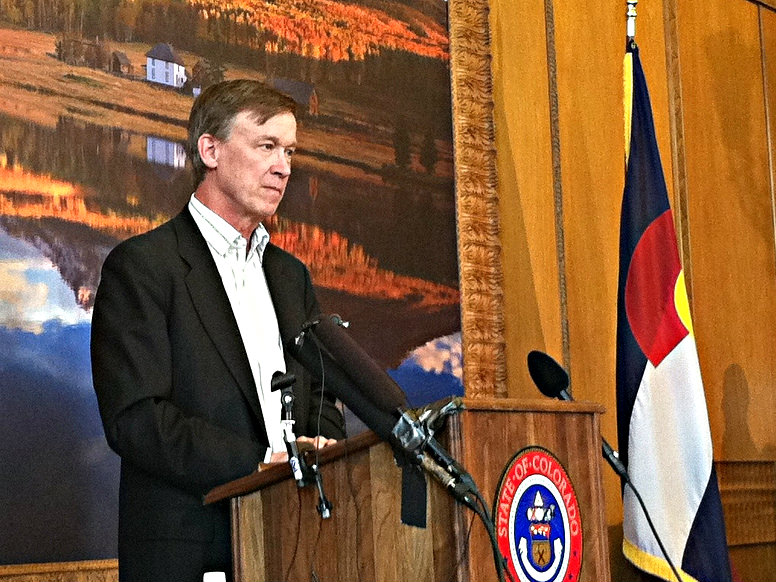
 Governor John Hickenlooper describes the ongoing talks aimed at heading off several controversial ballot measures on oil and gas drilling as one of the most difficult negotiations he’s ever been involved with.
Governor John Hickenlooper describes the ongoing talks aimed at heading off several controversial ballot measures on oil and gas drilling as one of the most difficult negotiations he’s ever been involved with.
The goal is to get the industry to agree to let cities and counties take on more regulatory powers. In return, citizens groups would stop pushing for constitutional amendments to allow local governments to ban fracking.
The governor says he's working seven days a week on the negotiations. But with backers of one of the initiatives cleared to start gathering signatures, the clock is ticking.
"The difficulty in these negotiations is we just don't have the time to be as thorough as many of us would prefer," Hickenlooper says. He adds that there's a lot of incentive for all sides to reach an agreement, rather than having to spend tens of millions of dollars on an election.
Even as he remains optimistic for a solution, the governor concedes that the measures that are on the table, such as giving local governments the power to regulate light and noise pollution from drilling operations, probably aren't enough to satisfy staunch opponents of fracking.
"If someone really wants no fracking and no oil and gas, then I think they probably would prefer to go to the ballot," Hickenlooper says.
Indeed, representatives from 11 grassroots groups involved in local anti-fracking measures released a statement Wednesday demanding they be included in negotiations.
The statement claims "none of the citizen and environmental groups that actually moved the moratoriums and bans forward in the last 18 months... have even known about the meetings, let alone been invited to attend."
"Who better to ask than us?" says Laura Fronckiewicz, head of the group Our Broomfield. "We’re on the ground here in Colorado. We’ve talked to citizens, we’ve talked to his constituents. Why wouldn’t we be there?"
As of Thursday morning, Fronckiewicz says her group had received no reply from the governor.
In his conversation with CPR, the governor put the odds that he'll have to call a special legislative session to enact some sort of compromise at only 50-50, the same chance he gave when asked at the end of the regular session three weeks ago. And Hickenlooper says he's not placing any deadline on an end to the negotiations.
"It's when these two sides get so frustrated that they give up. And they're not there yet," Hickenlooper says. "Both sides I think are negotiating in good faith, trying to figure out...how do we get to a better agreement."
But the governor admits that tensions over the issue are running high.
“It’s almost like you’ve got these two armies – on either side of the border – and they’re both poised for battle and we’re trying to get them to go home to their farms and ranches," Hickenlooper says.








